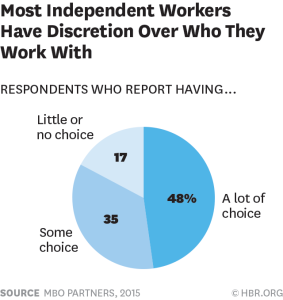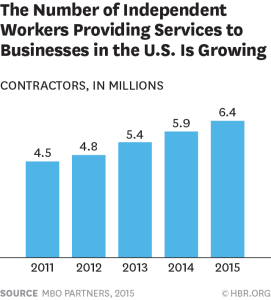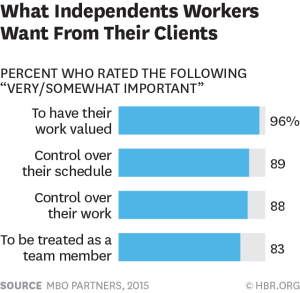
There are always peaks and valleys in the work of an architectural firm. Sometimes we work on multiple projects at different phases. Other times we are focused on a single project. Design Development and Construction Documents phases can be exceptionally hectic, with deadlines looming.
There are many reasons to pursue a career as an architect on a project basis. Perhaps you are looking for a way to accelerate your career growth, or you want to avoid pigeonholing into one particular type of architecture. Either way, working on back-to-back projects at different firms can give you the necessary experience to be more marketable than your peer group.
Most architects begin their careers working at one firm for several years. However, there are many benefits to pursuing a career as an architect on a temporary or project basis. Here are just a few:
1. You will gain experience working on a variety of different types of projects.
2. You will have the opportunity to work at different firms, each with a unique culture and approach to architecture.
3. You will be able to build a network of contacts across the industry.
4. You will develop a more marketable portfolio because of your diverse experience.
Job Seekers
CFA is a full-service placement and recruiting firm. Our recruiters will help you find the perfect new job and career. We work with top companies in various industries and can connect you with opportunities that best match your skillset and goals. Whether you’re looking for a new challenge, higher compensation, better use of your skillset, growth potential, or a better work/life balance, CFA can help you find the right fit for your design sensibilities.
If you’re passively searching or already in the job market, submit your resume today, and one of our experienced recruiters will reach out to discuss available opportunities.
CFA also offers various other services to job seekers, including resume writing, interview coaching, and salary negotiation assistance. We can help you at every step of your job search, from finding the right opportunity to nailing the interview and negotiating the best possible salary.
CFA quickly became the industry leader in flexible hiring, full-time freelancing, and project consulting. Our years of experience and commitment to quality have made us the go-to source for architecture and interior design talent. We offer a wide range of services to meet the needs of our clients, and our team of experts is always available to help you find the right solution for your project.
Since its founding, CFA has helped thousands of architects and interior designers find their ideal job placements. We take pride in our reputation as one of the industry’s most respected and trusted names.
If you’re looking for a trusted partner to help you with your next project, look no further than CFA. We have the knowledge and experience to get the job done right, and we’re always here to help you find the perfect solution for your needs. Contact us today to learn more about our services and how we can help you succeed at 212-532-4360 or email your resume and portfolio to recruiters @ cons4arch. com
ABOUT THE AUTHOR
After working at various design practices on a full-time and freelance basis and starting his design firm, David McFadden saw a gap to fill in the industry. In 1984, he created an expansive hub for architects and hiring firms to sync up, complete projects, and mutually benefit. That hub was Consulting For Architects Inc., which enabled architects to find meaningful design work while freeing hiring firms from tedious hiring-firing cycles. This departure from the traditional, more rigid style of employer-employee relations was just what the industry needed – flexibility and adaption to current work circumstances. David has successfully advised his clients and staff through the trials and tribulations of four recessions – the early ’80s, the early ’90s, the early 2000s, the Great Recession of 2007, and the Pandemic.
Project Based Work
|
architects, architecture, Careers, Consulting For Architects, flexible, freelancing, Interviewing, jobs, opportunities, pandemic, Project based, recruiters, resume, salary, workforce, worklifebalance, writing
|

The Growing “Gig Economy”
There has been a lot of debate over the past year about the merits of the gig economy—where people work on a project or contract basis instead of holding down jobs as traditional full-time employees. Presidential candidates have weighed in on the pluses and minuses of “gig” or contingent work. Lawsuits against on-demand work companies like Uber and Handy are widely covered in the press while investors continue to pour billions of dollars into similar startups.
For the most part, these discussions and debates have focused on companies like Uber and Lyft that connect independent contractors with customers to provide consumer services. More often ignored is the growing population of contingent workers, including independent contractors, statement-of-work-based labor, and freelancers who provide services to corporations. But this is a growing population of workers, many of whom are highly skilled.
It takes a careful mix of mission, management, and culture.
Attracting, retaining, and managing these highly skilled workers will require new ways of thinking about talent management and the role that external talent plays. Companies will need to become “the client of choice” for these high-end contractors.
Recent research illustrates the growing corporate use of contingent workers:
Our own research reinforces these findings. The MBO Partners 2015 State of Independence workforce study found that 6.4 million Americans report that they provide professional services to corporations on a contingent or contract basis. Of these, about 2 million report earning $75,000 or more last year.
Not only is this group large—by way of comparison, this is substantially more than the roughly 4 million Americans who work in the automotive industry, including those working in car dealerships and automotive parts retailing—it’s also growing. Our study shows the number of contingent workers providing professional services to corporations has been growing at about three times the rate of overall employment over the past five years.
Two broad shifts—one on the employer side, the other on the worker side—are driving this boom. First, companies increasingly need a flexible workforce to compete globally. In our research we heard from company leaders that their businesses are turning to independent workers to increase business flexibility and agility. Independent workers allow them to quickly and efficiently scale staffing up and down to meet shifts in demand and changing business circumstances in an increasingly volatile and always-changing global economy. Businesses are also turning to highly skilled independent workers due to difficulties in attracting and retaining employees with hard-to-find specialized talents.
Second, many skilled professionals want independence and are going into contingent work to gain greater work/life flexibility, autonomy, and control over their careers. These highly talented professionals are realizing they are able to go off on their own and make as much or even more money — so they’re doing just that.
These professionals are in demand, and they know it. According to our research, 83% say they have a lot of choice or some choice over who they work with. Only 17% report having little or no choice over who they work with. In other words, these talented professionals can choose what to work on and with whom to work.
So what do these highly skilled independent workers want from their clients?
Being paid well and on time is obviously important to independent workers. But less obvious — and generally more important — are the non-monetary reasons independents choose their clients.
Skilled independents want the ability to control their lives, have meaningful work, and to be part of the team. When it comes to deciding which clients to work with, 96% selected “Value my work” as an important client attribute. Right behind was “Allow me control over my schedule” (89%) and “Allow me control over my work” (88%). “Treat me as part of the team” came in fourth. While independents value their autonomy and don’t want to be traditional employees, they also want to be treated as contributing team members.



Co-Authored by:
Steve King is a Partner at Emergent Research, a research and consulting firm focused on small and micro businesses.
Gene Zaino is the founder and CEO of MBO Partners, a provider of support, tools and resources for independent professionals and their clients.
Original Source
Consulting Community
|
architects, business, Consulting, David McFadden, Employment, flex staffing, Flexible Workforce, Freelancers, Gig, Hiring, jobs, Project based
|












